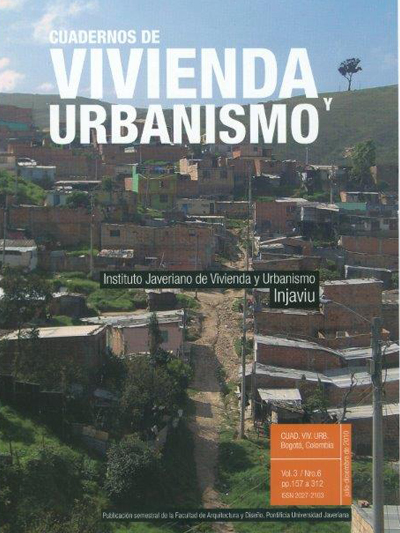Abstract
The study which gave rise to this article, understands the landscape as a social construction linked to a collective recognition of a mental image based on the experience of space. From this recognition, it is establish that the incorporation of urban design fundaments in the conception of the public space of residential areas, improving their qualities, making them valued as landscape. In this sense, the study offers an instrument for the analysis and evaluation of such spaces, linking the criteria derived from three different but complementary approaches to help the comprehension of the landscape, and the identification of variables (fundaments) that allow building an integral analysis. From these concepts, the sustainable approach provides an ecological vision of the human processes, establishing the construction of the residential (housing) landscape in terms of sustainability, specially related to the achievements of qualities of urban space associated to the comfort.
This journal is registered under a Creative Commons Attribution 4.0 International Public License. Thus, this work may be reproduced, distributed, and publicly shared in digital format, as long as the names of the authors and Pontificia Universidad Javeriana are acknowledged. Others are allowed to quote, adapt, transform, auto-archive, republish, and create based on this material, for any purpose (even commercial ones), provided the authorship is duly acknowledged, a link to the original work is provided, and it is specified if changes have been made. Pontificia Universidad Javeriana does not hold the rights of published works and the authors are solely responsible for the contents of their works; they keep the moral, intellectual, privacy, and publicity rights.
Approving the intervention of the work (review, copy-editing, translation, layout) and the following outreach, are granted through an use license and not through an assignment of rights. This means the journal and Pontificia Universidad Javeriana cannot be held responsible for any ethical malpractice by the authors. As a consequence of the protection granted by the use license, the journal is not required to publish recantations or modify information already published, unless the errata stems from the editorial management process. Publishing contents in this journal does not generate royalties for contributors.


